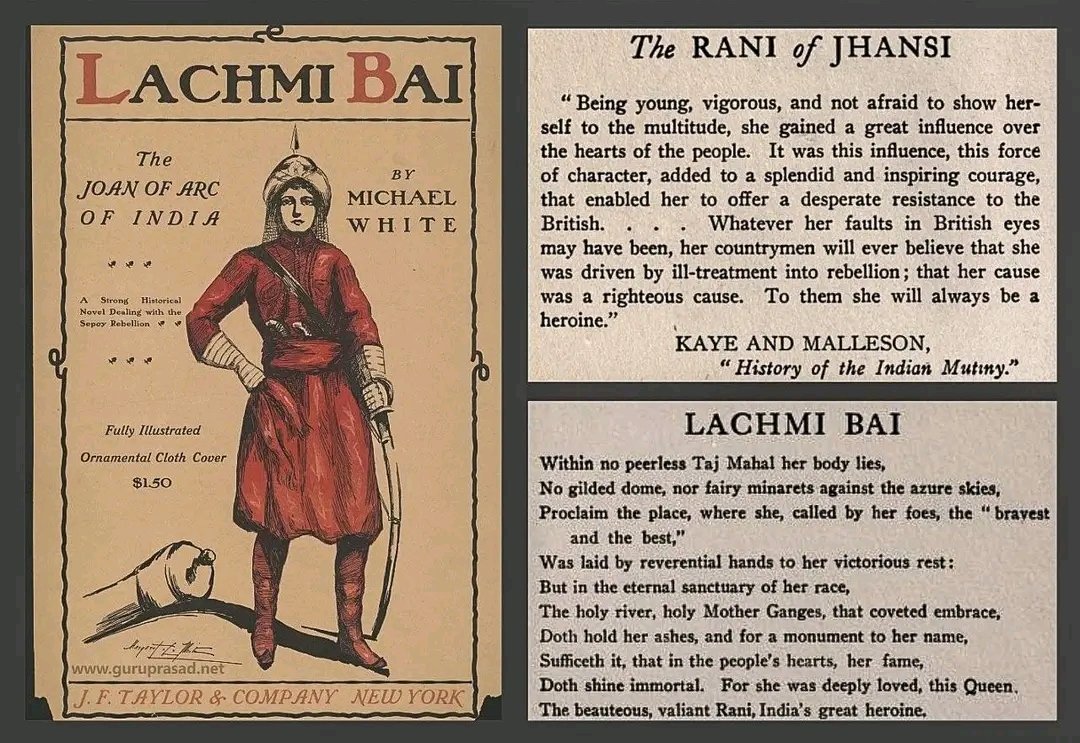Motherless at 4, marriage at 14, mother at 23, widow at 25, defender of Jhansi at 29, battlefield warrior against British forces at 30, veeramarana at 30!
On June 18, 1858, Jhansi Rani, "most dangerous rebel leader" in British occupied India , was killed at the Gwalior fort.


On June 18, 1858, Jhansi Rani, "most dangerous rebel leader" in British occupied India , was killed at the Gwalior fort.



Even if the Indians forget, Gwalior fort will never be forgotten by the British. This is because it is a fort that has witnessed the fiercest struggle against British colonialism. The last battle of Jhansi Rani Lakshmi Bhai, was fought at this fort in Gwalior.
British army led by Hugh Rose attacked Jhansi in March 1858, and laid siege upon the fort. Lakshmi Bai escaped and was tracked to Banda, where Rose’s forces reported that “… though the fellows did their utmost, she got away She is a wonderful woman, very brave and determined.
It is fortunate for us that the [Jhansi] men are not all like her.”
In June 1858, 20,000 Indian rebels led by the Rani – donned in full warrior’s regalia – mounted an attack on Rose’s forces outside Gwalior. And it was here that the queen met her death.
In June 1858, 20,000 Indian rebels led by the Rani – donned in full warrior’s regalia – mounted an attack on Rose’s forces outside Gwalior. And it was here that the queen met her death.
Rose wrote of his foe: “The Rani was remarkable for her bravery, cleverness and perseverance; her generosity to her Subordinates was unbounded. These qualities, combined with her rank, rendered her the most dangerous of all the rebel leaders.”
The British captured Gwalior three days later, and burnt the royal library containing thousands of ancient Sanskrit scriptures.
#RealHeroes
#Manikarnika
#Punyasmaran
#JhansiKiRani
#VANDEMATARAM
#RealHeroes
#Manikarnika
#Punyasmaran
#JhansiKiRani
#VANDEMATARAM
• • •
Missing some Tweet in this thread? You can try to
force a refresh

 Read on Twitter
Read on Twitter











